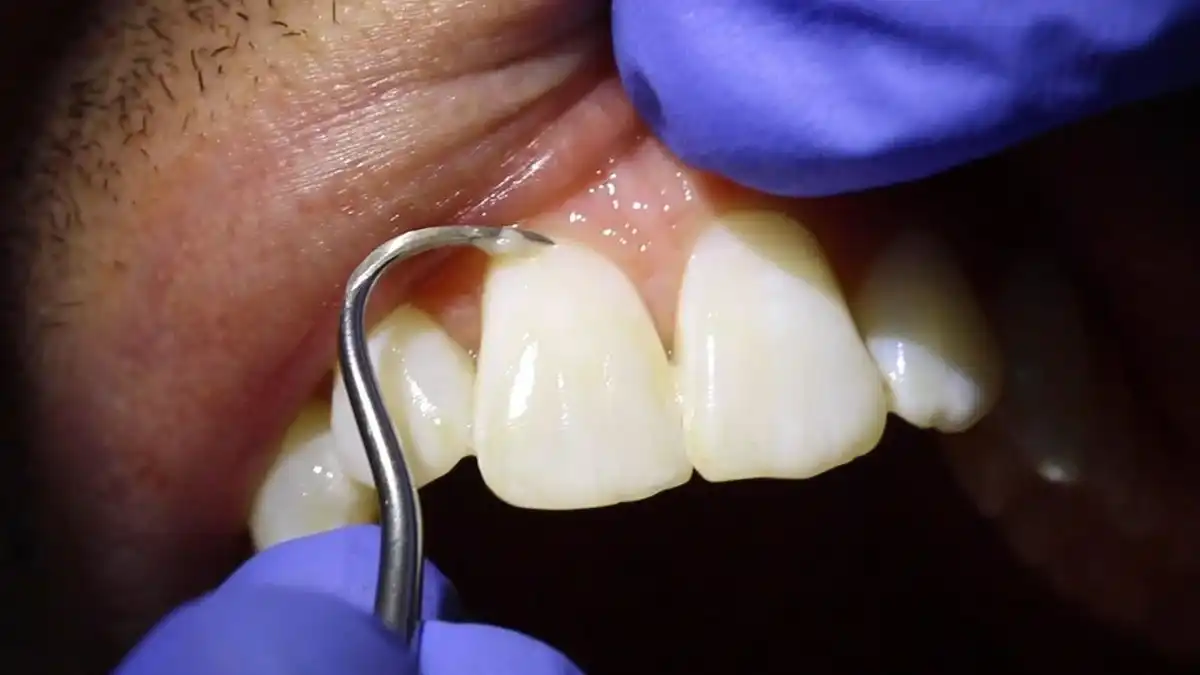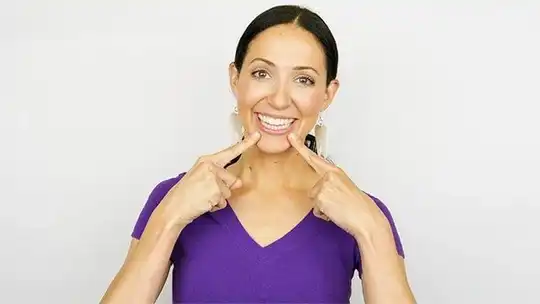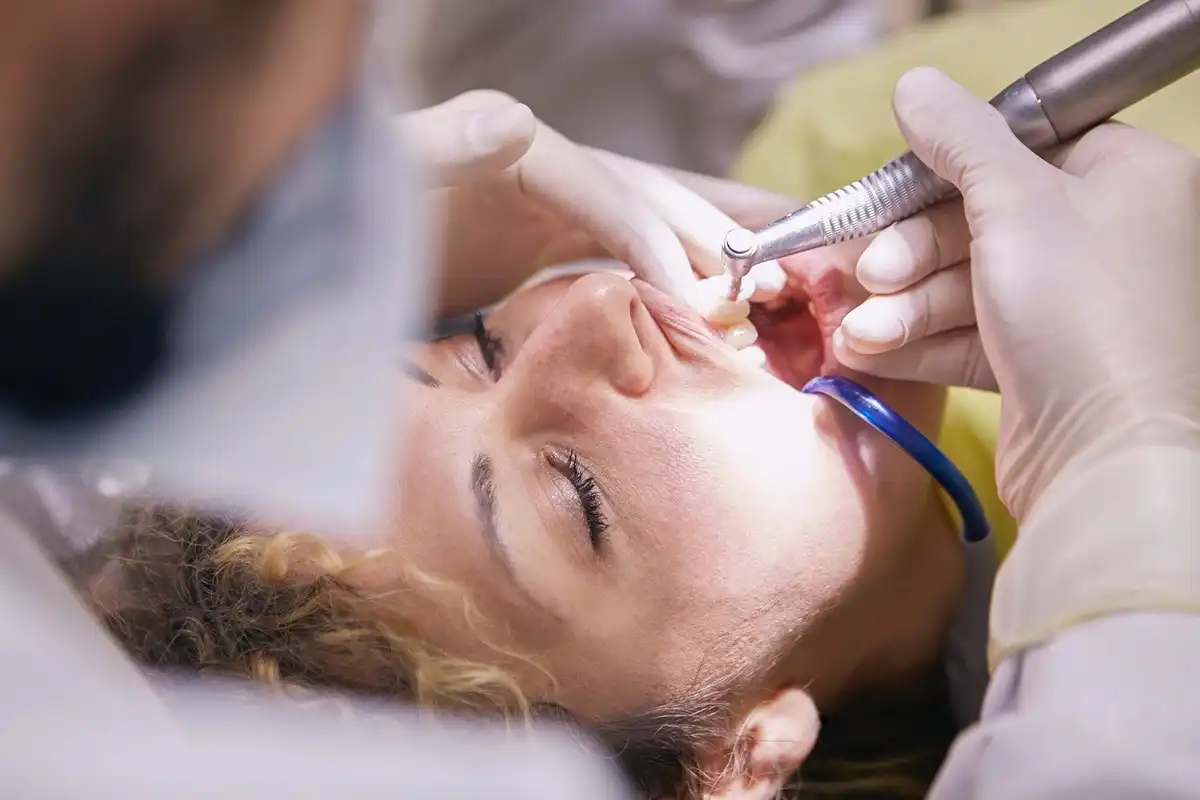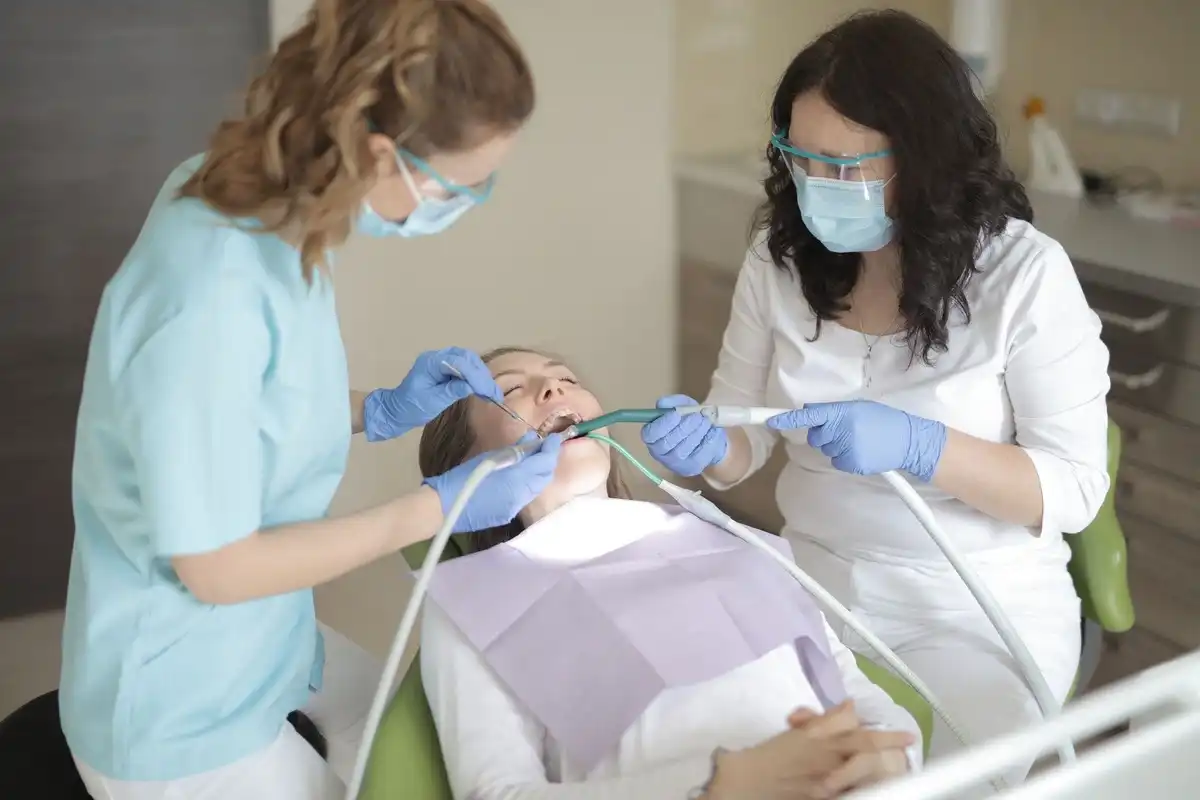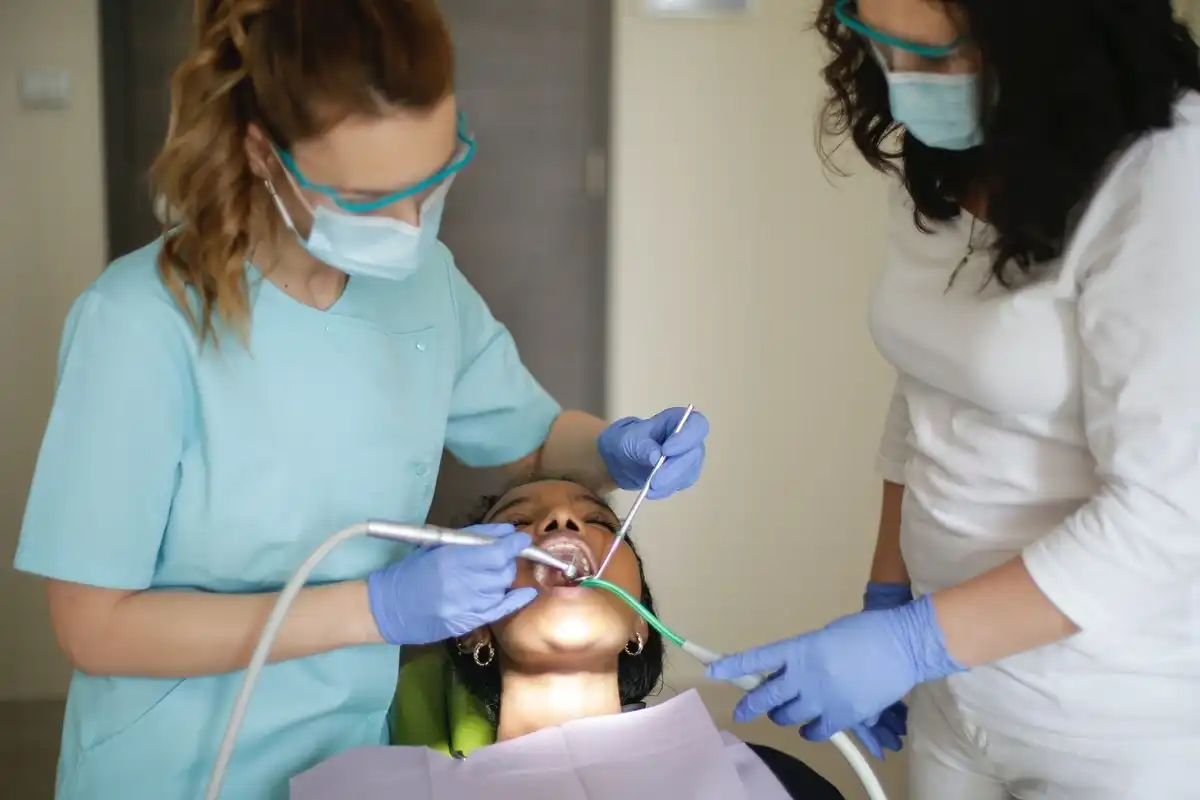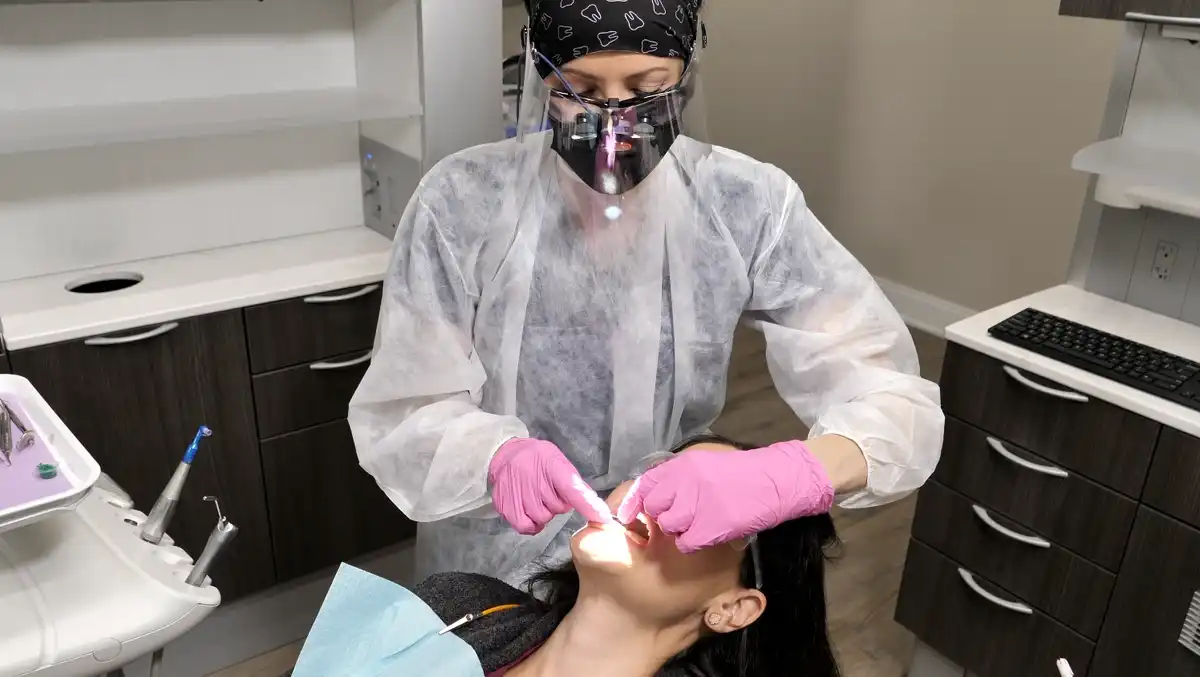5 Tips to SURVIVE Dental Hygiene School

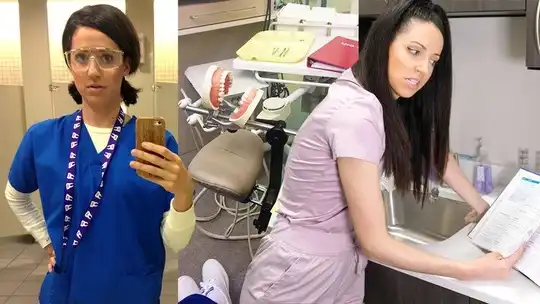
It’s no lie and I’m not going to sugar-coat it any. Going to dental hygiene school is one of the toughest things that a person can do. Practically every dental hygienist, regardless of how long they’ve been in practice, will tell you how rough it was to pass clinicals, take national boards, and just feel like they weren’t running on fumes when they were in college. And there’s probably a good chance that you’ll see at least a handful of your classmates cry at one point or another. All of that being said, dental hygiene school opens up a world of possibilities for your future and your career. But you’ve got to have a plan on how to handle yourself and not get too worn out during the process.
The Stress Of RDH School
During dental hygiene school, you’ll have to study everything from pharmacology to the chemistry of dental materials, not to mention learn how to give injections, and how to look backward in a one-inch mirror to clean teeth that are completely hidden from plain view. There is absolutely nothing easy about dental hygiene school. But the way you handle yourself and the approach you take to learning can “make or break” you in the process. Here are five steps to prevent a complete breakdown in the process (and maybe even enjoy yourself a little bit!)
1) Self Care
This is the one thing that most students probably don’t do during dental hygiene school. Especially if you’re also working or raising kids. Scheduling time for self-care helps you balance out the time and energy you’re pouring into studying and trying to pass clinicals or boards. Self-care can be something as simple as a 10-minute morning stretch or walking a mile during your lunch break to get some time outdoors. Whatever it is, make it a permanent part of your daily routine.
Self-care helps prevent burnout. Both mentally and physically. Along those lines, be sure you’re making healthy everyday choices like drinking plenty of water, eating nutritious foods, and just getting some vitamin D from being outside in the sun. If you’re always cooped up indoors and eating process foods, it will start to physically take a toll on your body.
Your self-care routine can be whatever you want it to be. Maybe it’s just taking a warm bubble bath once a week, or working on a puzzle and not thinking about anything else. Whatever helps you get your head in the right place! Pause, breathe, and do what makes you feel good.
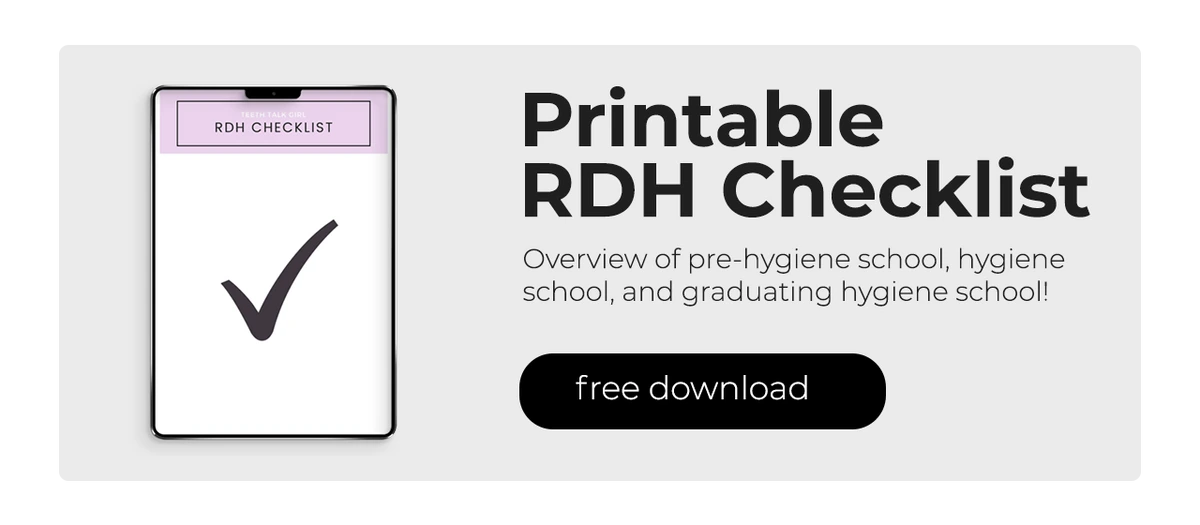
2) Get Good Sleep
A sleep-deprived body will make it harder to study, pass exams, or remember what you learned in clinicals the day before. Sure, we all stay up late to cram for an exam every now and then. But if our brains don’t get quality sleep, they’ll perform at less optimal levels. And surprise —when we’re sleep-deprived, we also tend to eat more because our body isn’t getting the energy that it needs so it’s looking for it elsewhere.
Being sleep-deprived will put you straight into a vicious cycle of always being too tired to focus, work out, and rely on caffeine to try to get by.
Everyone needs good sleep. For some of us, we need 8-9 hours at night. Others may only need 7 hours and feel perfectly fine! They might even feel well-rested enough to go for a 5 am run. When you sleep well during dental hygiene school, you’ll have more energy for self-care, working out, and focusing on your upcoming exams.
Schedule your sleep and practice good sleep hygiene. That means no caffeine after a certain time each day, turning off all of your ambient lighting and electronics, and having a routine you try to stick to.
3) Stop Freaking Out!
This one might seem practically impossible. But if you’re freaking out, you’re not getting anywhere productive. Just like public speaking, getting graded on your dental hygiene clinicals or taking a big national board exam can get you really hyped up. But use that adrenaline to your advantage!
Why shouldn’t you freak out during dental hygiene school? Because you’ve been studying for this for weeks, months, and years. You’re learning a skill that you’re already fairly competent in, so have the assurance that your instructors are there to help you build on what you’re learning.
You’ve practiced. You’ve studied. You’ve got this. And if you don’t or you’re on the verge of feeling like you’re about to flunk out, that’s when you need to be proactive and ask for help. Your instructors can give you tips or show you what to read/watch if you need more information on a specific procedure or concept. But don’t let your fear send you into a tailspin. Remember that your instructors are being paid to help you learn, so let them!
4) Take Mind Off Graduating
I might sound crazy, but one day you might actually miss being in dental hygiene school. Try not to think about what’s coming or counting down to how many weeks or months you have left in school. Instead, be in the present and focus on what’s in front of you at that moment.
Right now is the time you’ve set aside for learning and absorbing all of the information that you can. The real world will get here soon enough and when it does, it isn’t going anywhere. Focus on the present and what’s in front of you, being mindful of your current list of to-dos. Not only will it make you a better student, but it will also help you with your self-care routine.
If you really feel like you need to spend some time thinking about or worrying about something that isn’t happening “right now”, give yourself exactly 3-5 minutes—and set a timer—to do so. Once your time is over, don’t bring it up again until the next day.
5) Practice Good Ergonomics
This one is SUPER important because it’s going to affect you right now during dental hygiene school as well as the last days of your career. Good ergonomics: they’re not a suggestion, they’re a must-have.
Your ergonomic habits are easier to make than they are to break. So, start off on the right foot by practicing proper hand, head, and back positioning from day one. If you’re always hunching over and contorting your body to see indirect tooth surfaces, you’re not going to be able to practice dental hygiene for very long. The more familiar you get with proper positioning and posture, the longer and more successful you’ll be in clinical hygiene once you finally graduate from dental hygiene school.

Focus On Yourself!
Everybody needs some time to rest and be themselves. Use your school holidays and breaks to do just that. But when you’re in the midst of dental hygiene school, be sure to be good to your body, mind, and friendships. Give yourself plenty of time to sleep, eat healthy, and practice good self-care by doing activities with the people you love. By balancing your physical well-being with the mental stress of dental hygiene school, you can perform better, feel healthier, and enjoy your time even more once everything is all said and done. Knowing how to balance work, play, and rest are key!

Make your inbox smile!
Subscribe
